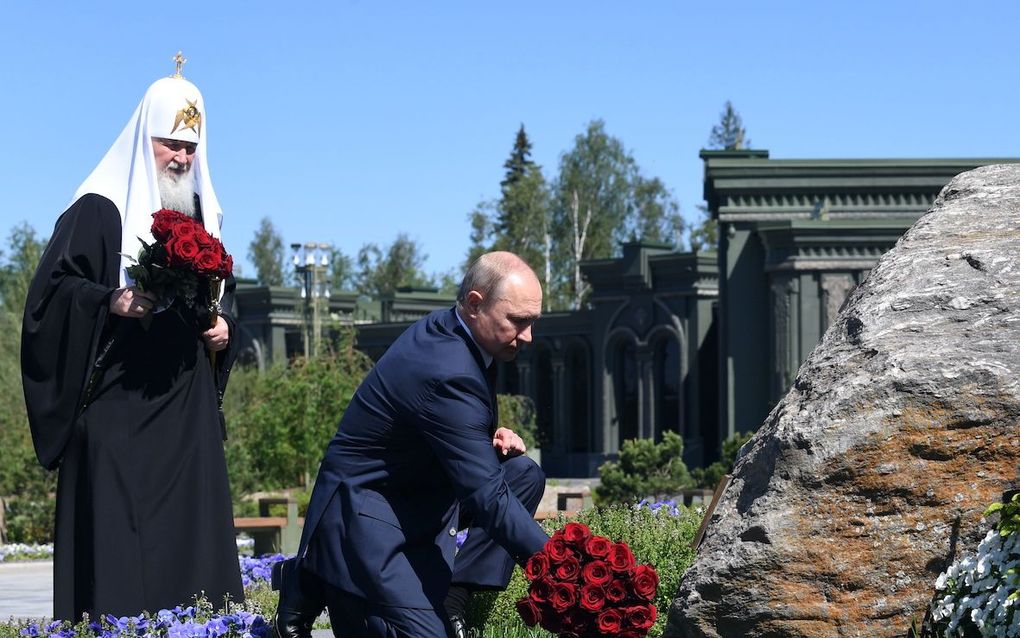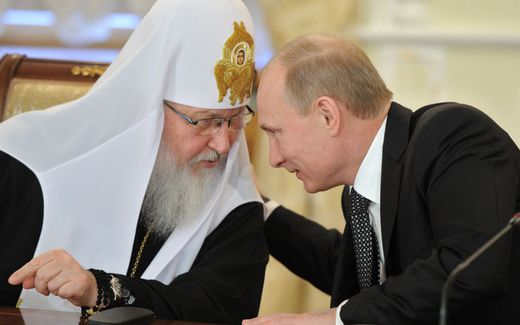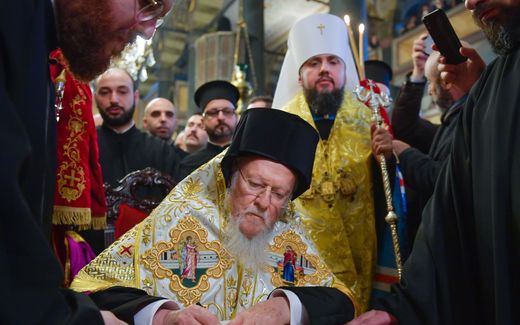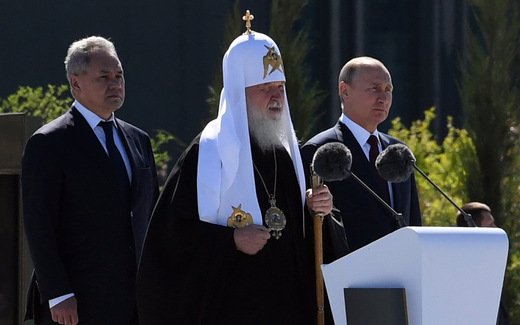Idea of Russian world is no heresy at all: Diptych on Russian ideology (2/2)

The criticism on the doctrine of the Russian world is not documented, Orthodox scholars say. Photo: President Putin and Patriarch Kirill. Photo EPA, Alexei Nikolsky
Eastern Europe
In the West, it sounds very self-evident to call the idea of the “Russkiy mir” heretical. The people and the mass media accept that view quite easily. But Orthodox scholars are still not impressed by the criticism of the doctrine of the Russian Orthodox Church.
They think the Western authors of a recent declaration have understood almost nothing of the teaching of church and nation. This text led to “profound perplexity” among Russians themselves. The accusation of the amalgamation of church and nation is just nonsense. Therefore, this declaration is not a “brotherly reproach”, but a “misunderstanding.”
The platform Public Orthodoxy published a lengthy “Declaration on Russian world teaching” on March 13th. In that text, many Western scholars condemned the idea of “Russkiy mir” as heretical and a form of “religious fundamentalism”. Above that, the Russian church is far too much connected with the Russian state and her “shameful actions”.
The platform Orthodox Christianity published two replies to this declaration. In the first reply, Irina Borshch writes that there “are absolutely no citations” in that text that “would expose the false teaching”. Neither is the declaration based on sources. It is based more on a “reconstruction” in other texts. But there are no quotations from, for instance, the chapter about Church and nation in the Social Concept of the church. If they had studied that, the declaration would have been different.
Church full of consumerism
The text gives the wrong suggestion that Russians are interested in ideology, Borshch goes further. “Today’s Orthodox population in general has little interest in any ideology after the Soviet period; their temptations much more often consist in consumerism rather than ideology. It is an irrefutable fact that members of the Russian Orthodox Church today can have extremely different views and convictions, belong to various sociological groups and parties, are of different nationalities, and can be citizens of different countries. The church remains a place that is open to all, and that is what gives it grounds for calling its members “brothers and sisters”.”
Statements and texts from the Kremlin “evoke neither massive nor minimal collective enthusiasm”, Borshch adds.
The author rejects the accusation of “demonisation of political and religious dissenters and minorities”. Borshch interprets this as criticism of the church’s position on sexual ethics and her stance against homosexuality. “This is simply witness, in no way nationalistic, but universal, based on Holy Scripture and centuries-long experience of church life. The Russian Church has no grounds for changing its proclamations and mission; moreover, it has no right to change them wilfully, to be in step with the reigning worldview and political convictions of the “progressive world”.”
Media success
Borshch says that the heresy declaration was an “extraordinary media success” since it was translated into various languages and quoted in the media. That might illustrate how self-evident the criticism of Russia is for the Western mind. But it does not prove that this criticism is really documented.
It’s all about homosexuality
The American Archpriest John Whiteford, in his article, does not focus so much on the text of the declaration but shares doubt about the reliability of the platform Public Orthodoxy. That belongs to the American Fordham University. On his personal blog, he writes that this platform regularly “promotes homosexuality and other forms of deviancy”.
Whiteford sees this not only among a few American scholars but broader in the Eastern Orthodox Church. For instance, some high clerics from the Ecumenical Patriarchate in Constantinople have made some pro-gay statements, as did the leader of the independent Orthodox Church of Ukraine, Metropolitan Epiphanius.
“And what I have noticed, in the English-speaking Orthodox world at least, is that those who promote the acceptance of homosexuality in the Orthodox Church have all been consistently lining up behind the Ecumenical Patriarchate’s actions in Ukraine”, Whiteford says.
The fundamental problem is that Public Orthodoxy does not speak up against the real enemies of Christian morality, Whiteford says. “They are one of the chief purveyors of these heretical teachings. So Public Orthodoxy is hardly a reliable guide on the subject of what is, or is not heretical.”
Whiteford shares the Russian perspective on the recent history in Eastern Europe. Ukraine has a “post-coup government”, a coup “sponsored by the United States”. The church in Ukraine is a “schismatic” one.
Whiteford asks why the authors of this declaration “not felt any need to condemn the United States’ regime change war in Syria”. That war has cost more than 600,000 lives and has made the life of Christianity in that country very difficult.
Whiteford himself sees nothing wrong or aggressive in “Russkiy mir” teaching. He refers to an article by Patriarch Kirill from 2014. He states that the Russian world is not something political but is a civilisation. Not only Russians belong to that, but also Belarusians and Ukrainians. And it is the common calling of all these people to preserve this civilisation. According to Whiteford, there is nothing aggressive in this teaching.
Related Articles






